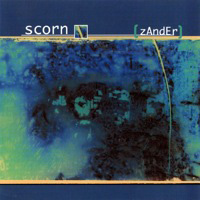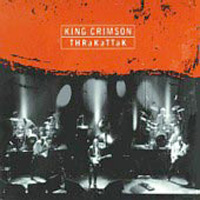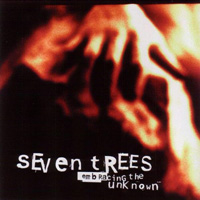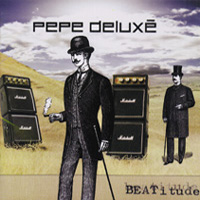 Scorn
Scorn
Zander (Invisible)
by Lex Marburger
I’d like to discuss the new album by Scorn as a history of one man’s exploration into the dark underbelly of dub electronic music. The new album Zander can only be understood if one has taken into account Mick Harris’ past efforts, and his ceaseless quest to travel from one extreme to another. Harris used to be in Napalm Death.
His first exploration as Scorn was in 1994, with an album called Colossus, an apt title due in part to the burden upon his shoulders of living up to the title of “drummer for one of the fastest grindcore bands in history,” and to the fact that the album itself is a huge departure from any kind of metal – it’s bass-heavy, grinding, dub music. Although journeying into dub territory, Harris still seemed to be shaking off his Napalm Death and Painkiller (an improvisational noise-core band with Bill Laswell and John Zorn) influences, Colossus being the “loudest” and “angriest” of Scorn’s material. The bass was heavily distorted, and the drums were obviously struck with considerable force, lending the album a violence that was not to be seen in his later works (though the threat of violence is always prevalent in Scorn’s music).
Scorn’s next album was Evanescence, and can be considered the epitome of Scorn. Deep grooves combined with a cleaner, but no less interesting, bass made a recipe for greatness. On top of this were samples, selections from texts, and other extraterrestrial sounds. The complete effect was one of entering into a surreal world, a dark trance, to hallucinate an entire universe. Such was the response to Evanescence, that it was remixed (by Bill Laswell among others) on an album called Ellipsis. Although many of the remixers took the songs out of their original environment of melancholy dub and into ambient, techno, and other realms, Ellipsis showed the surprising solidity and resilience of the songs from Evanescence.
Between Ellipsis and Scorn’s next album Gyral, Harris abandoned his chronically alcoholic bassist Nick Bullen; Gyral shows this loss. Whereas Scorn was two people, now it was one. There was no one to bounce ideas off, no one to add external inspiration. The bass on Gyral seems like an afterthought. The bass sound itself was not rich as in the past albums, but overly electronic. Although still able to kick the ass of any competitor, Gyral lacks the power of Evanescence.
 Due to a label change from Earache to Invisible, a Scorn release is lost to me, so we’ll get right to his newest, Zander. Although his technique has remained constant throughout, with the heavy bass/drums combination, punctuated and given shape through the use of tiny sounds above it all, Zander has taken a turn to more ambient ground. The repetition of the grooves, obvious in all of his works, seem more drawn out. The tracks are less and less like songs, and more like atmospheres. Not background music, but programmatic, as if he’s not presenting a song, but rather an emotion or a thought. Gone are the words – it’s all music now. The cyclical drumbeats don’t just hold down the backbeat, they turn and wheel around different accents, they’re complex, but through repetition become recognizable, familiar, and simple. The bass is no longer a seeming afterthought, but it’s still not a main factor. It weighs down the song, adds enormous low end, but the drums are still the main focus. It’s a good thing Harris is such a good drummer. If anyone else tried this, it wouldn’t be nearly as interesting.
Due to a label change from Earache to Invisible, a Scorn release is lost to me, so we’ll get right to his newest, Zander. Although his technique has remained constant throughout, with the heavy bass/drums combination, punctuated and given shape through the use of tiny sounds above it all, Zander has taken a turn to more ambient ground. The repetition of the grooves, obvious in all of his works, seem more drawn out. The tracks are less and less like songs, and more like atmospheres. Not background music, but programmatic, as if he’s not presenting a song, but rather an emotion or a thought. Gone are the words – it’s all music now. The cyclical drumbeats don’t just hold down the backbeat, they turn and wheel around different accents, they’re complex, but through repetition become recognizable, familiar, and simple. The bass is no longer a seeming afterthought, but it’s still not a main factor. It weighs down the song, adds enormous low end, but the drums are still the main focus. It’s a good thing Harris is such a good drummer. If anyone else tried this, it wouldn’t be nearly as interesting.



